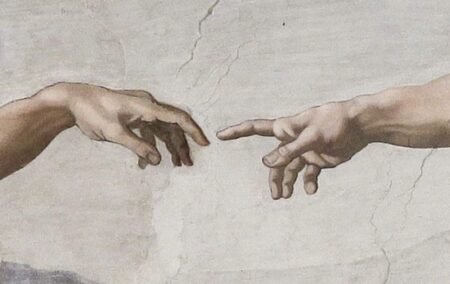Despite the vast increase in knowledge and understanding that the application of the scientific method and its by-product, secularity, have brought Western civilisation over the past three centuries, the inherent human tendency to perceive reality in spiritual rather than secular terms still strongly influences our social beliefs.
This spiritual inclination is most clearly evident in the ‘two-world perception’ that habitually characterises all human political ideologies and religions, both ancient and modern. By the two-world perception, I mean belief in the existence of a superior, spiritual world, inaccessible to the senses, and in parallel to the material world in which we all indisputably exist. This dual perception forms the very basis of religions and, no less, modern political ideologies.
In respect of religions, this superior spiritual world is perceived as existing currently alongside the material world, but with access granted the individual only after death, and then only as a reward for believing and adhering to a prescribed doctrine. This explicit spiritual world is supposedly accessible to each individual, but only via the narrow doctrinal gateway designated by the group that controls the religion.
As all modern Western political ideologies operate in a supposedly secular world, their spiritual world is of necessity implicit rather than explicit. It resides in their common spiritual assertion that society is currently so profoundly defective morally that it violates an objective, transcendent, and so supernatural, moral standard, professed by each ideology. To correct this profound moral defect, political ideologies declare that society must therefore be reorganised socially in the manner that each particular ideology demands.
In respect of Socialism and Communism, the new social order must be egalitarian, in order to attain the desirable spiritual state of what they believe to be something called Social Justice. In respect of Aryan Fascism, the desirable spiritual state will supposedly be attained only by ridding society of its morally inferior elements, so allowing it to attain a state of what is racially perceived to be one of moral purity.
Although historically Western societies have existed where rationality and secularity appear to have prevailed over spirituality, such as briefly in pre-Platonic Greece and in Europe during the !8th-century Enlightenment, these have been rare exceptions. Generally, society has preferred to organise itself spiritually rather than secularly. The long history and commonality of this fact suggest very strongly that as humans we are inherently prone to the irrationality that is implicit in spirituality, and that secularity (‘having nothing to do with religion or spirituality’), in both the individual and in society, is an abnormality.
Our modern Western civilisation is supposedly secular, but while explicit religious belief has clearly declined, spiritual belief in other forms has not done so to nearly the same degree. Discouraged by the success and rationality of science from believing any longer in the blatantly and explicitly supernatural, spirituality has rather taken an implicit moral form, as illustrated in the political ideologies mentioned previously.
The one current Western political ideology that is secular, Classical Liberalism, came together as the result of a host of random historical circumstances in the 18th and 19th centuries, following the collapse of Feudalism. Based upon the recognition of the importance and benefit of the scientific method and rationality to humanity, it forms the basis of our current civilisation and has brought the West extraordinary material growth, individual liberty, a free market, property rights, limited government, freedom of speech, tolerance of diversity, and the rule of law, among other benefits.
The only serious alternative political ideology to Classical Liberalism in Europe, following the end of Feudalism, was Socialism, which, as we have noted, is not secular, although its early adherents falsely made a point of claiming that it was ‘scientific’. Socialism was in fact the ideological vehicle in which spirituality, appropriately reconfigured for a more rational era, was borne from the medieval past into the modern world.
Presented as an alternative economic system to the free-market Capitalism that forms the economic basis of liberal democracy, Socialism in reality has nothing to do with economics. As others have pointed out, it lacks the two fundamental requirements of any economic system. Firstly, it lacks a pricing mechanism that permits economic agents to set the appropriate price for each and every item in the market. Without a viable pricing mechanism there cannot be a functioning economy. Secondly, without private ownership of the means of production and the profit motive, Socialism lacks the incentive for the individual to commit their labour to collective economic activity.
With its call for fairness and equality, Socialism has an enormous emotional appeal to all decent people. Unfortunately, it has nothing positive other than this to offer them. Economically, it has always been a parasite on Capitalism. Even the so-called paragons of Socialism, the Nordic countries, rely on their strongly capitalist economies to finance their social programmes. It is, in fact, only the hard work of Capitalism that allows the fantasy and the emotional indulgence of a socialist society.
Judging by the general lack of knowledge of the origins and nature of Liberal Democracy in the West today, and by the apparent intellectual abdication of its ruling class in the face of revived spirituality, the current era of secular government and social order is drawing to a close. It appears that the West is reverting to the inherent human preference for perceiving reality in spiritual rather than secular terms – is in fact reverting to its preferred two-world perception.
The views of the writer are not necessarily the views of the Daily Friend or the IRR.
If you like what you have just read, support the Daily Friend.


